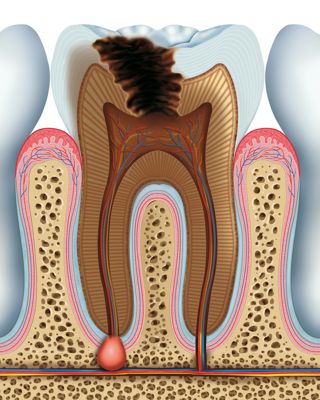Book An Appointment
Endodontics
Endodontics is a special discipline in dentistry that deals with maintaining the health of the living tissues (pulp) inside a tooth and preventing or managing infection in the surrounding tissues. The most common endodontic procedure is known as root canal treatment (RCT). The aim of RCT is to eliminate the damaged pulp as well as the bacteria that are causing the infection, and to restore the tooth to a pleasing appearance and functional state. The procedure involves removing inflamed or dead nerves and blood vessels from the centre of the affected tooth, which is accomplished by creating an access through the top of the tooth to the root canals and removing the dead tissue. The empty root canal system is then cleaned, shaped, and filled with special materials, and finally, a permanent seal is put over the top of the tooth. The procedure may be carried out over one or two visits to a dentist.

ENDODONTICS AT SUNRISE DENTAL
Let’s make your smile shine
